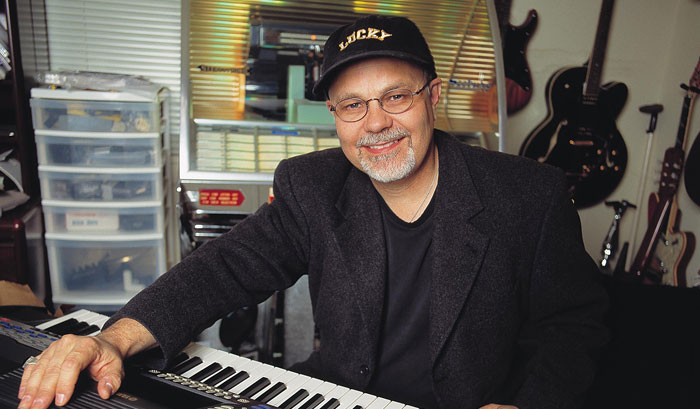


How do you sell songs without selling out?
"That's the line that every professional songwriter has to walk," says Nashville tunesmith Gary Nicholson. "There's a thin strip of acceptability in the country music market, and sometimes making a living there means you have to think of the job almost like working at an ad agency. But at the same time, most of my real successes have been the songs I wrote with no thoughts like that at all."
Find your own songwriting voice. Bring something new to the party.
Nicholson, who has had over 300 of his songs recorded by such artists as George Strait, Garth Brooks, the Judds, Emmylou Harris, Alabama, Reba McEntire, Patty Loveless, Montgomery Gentry, Lonestar, Trisha Yearwood, Vince Gill, Stevie Nicks, Wynonna, Waylon Jennings, George Jones, B.B. King, Bonnie Raitt, Neil Diamond, Delbert McClinton, the Neville Brothers, Keb' Mo', James Cotton, Junior Wells, Arthur Alexander, and NRBQ, has a special affection for those memorable, straight-from-the-heart songs. "They're like little keys I carry around with me," he says. "Probably the best example, and one I consider to be one of the best songs I've written, is 'The Trouble with the Truth', which was a hit for Patty Loveless. It goes:
The trouble with the truth is
it's always the same old thing
It's ruined the taste of the sweetest lies
It's burned through my best alibis
Every sin that I deny keeps hanging
around my door
The trouble with the truth is
it always begs for more.
Those are the songs that keep on living for me - and those don't come around all that often."
North Texas-born Nicholson commenced his career as a country-rock performer, and he remains a formidable guitarist. Yet not all his songs come to life on that instrument. "I sometimes write on the Yamaha PSR9000, because different things come when I write on a keyboard," he says. "I'll play different chords with my left hand that will generate new ideas, and before long an idea pops out. I'm not an accomplished keyboardist, but that's the good thing about the 9000. It helps me because it does so much by itself, like generating chord changes. It's got a lot of good sounds I can use for work tapes and demos, and the drum programs make it easy to get a work-tape drum track going very quickly. You can add fills by just pushing a button. It's proven to be a very useful writing tool."
Nicholson sometimes starts a song on guitar but moves it over to the PSR9000 midway through the composition process. "That can help me find things I might not find on guitar," he explains. "For example, I might start the changes on guitar, add a drum beat with the PSR, and then try playing the same changes using the PSR's auto-accompaniment - a process that might inspire me to sing a different melody than I might have sung if I was only using guitar."
"At times", notes Nicholson, "the PSR9000's sounds suggest a whole new direction for a tune: "For example, I wrote a song with Allen Shamblin that was recorded by Clay Walker. We were writing it in a two-beat, Cajun/bluegrass feel. But then we tried it over a Latin beat on the PSR that was so perfect for the song, we made the demo that way. Later someone called to ask us who played squeezebox on our demo, not realizing it was just the Yamaha accordion sound. That's a good example of a song that came alive through the use of that keyboard."
What's Nicholson's best advice for aspiring songwriters? "Find your own songwriting voice," he says. "Bring something new to the party. Write about things that strike your emotional core. Because of our basic oneness as human beings, if you find a way to reveal something from the core of your being in a song, a lot of other people will relate to it. That's the beauty of songs - finding a way to put into words and music something that someone else may have felt as well."
























